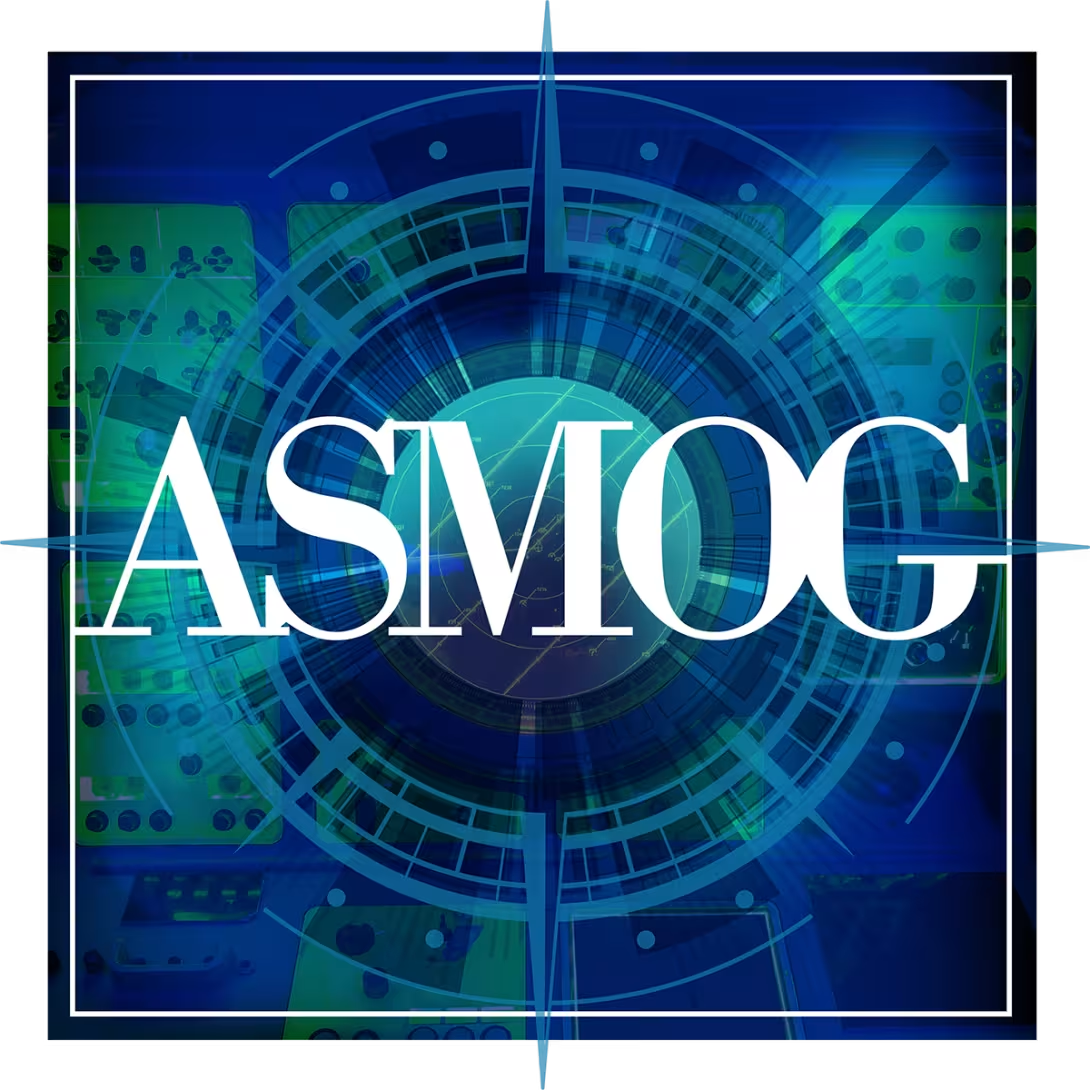ASMOG - Collaborative Project
Automation Shift in the Maritime Sector of the Offshore Oil and Gas Industry: Assessing Risk and Safety, Protecting Labor

About the research project
An illuminating but often overlooked site for studying the changing nature of our economic and labor systems can be found at the interface of the automation shift and the maritime sector. This project pilots a novel theoretical and methodological approach to understanding the relationship between human and automated labor in maritime industries, studying automation as a complex machine-society-nature system.
Through ethnographic studies on board on ships, on land and during simulation trainings, the project will examine the socio-cultural dynamics and changes of work relations, risk assessment and new ways of relating to the ocean.
ASMOG’s research is highly innovative and reflects current problematics, i.e. the automation shift in the maritime sector. The project explores how transformative developments of the maritime industry affect the conceptualization and management of safety and efficiency at sea.
Continuously expanding into new domains, automation technology is high on the agenda of industrial players and public-sector decision-makers. Automation of offshore and maritime operations is a complex, expensive and far-reaching initiative, as it attempts to reconcile the destructive effects of the Anthropocene with the global demands of energy, goods and services in an accelerated and “overheated” capitalistic world system (Steffen et al., 2007:614; Eriksen, 2016). However, there is skepticism towards loss of employment as result of automation in some sectors and recent studies suggest that seafarers experience a loss of autonomy caused by the close interaction with mainland operation management through digital interconnection (Sampson, Turgo, Acejo, Ellis and Tang, 2019).
Publications
Publications
Betti, M. & Ødegaard, C. V. 2024. Special Issue: Automation and Extraction. Shifting (In)Visibilities at New Technological Frontiers. Public Anthropologist.
Betti, M. & T. Landås. 2021. “Balancing the cultural outcomes and challenges in training the seafarer in the interconnection of the SDGs, safe and efficient operations at sea”. In University of Bergen and International Association of Universities publication on SDG 14.
Betti, M. 2023. "Liquified Natural Gas (LNG) in time of crisis. Observations from ethnographic fieldwork on board LNG carriers". Public Anthropologist.
Betti, M. 2024. “Maturing Machines: technology development and situated practices of socialization onboard liquified natural gas (LNG) carriers.”, Special issue: Automation and Extraction: Shifting (In)Visibilities at New Technological Frontiers, in Public Anthropologist 6(2).
Gentilucci, M. 2024. "Exploring Oceanic Dimensions: Rethinking Materiality and Automation in Deep-Sea Mining." Special issue: Automation and Extraction: Shifting (In)Visibilities at New Technological Frontiers, in Public Anthropologist 6(2).
Knudsen, S. 2025. "Det grønne skiftets usynlige slitere: Verftsarbeidere i Tyrkia." Teknisk Ukeblad, October 23. https://www.tu.no/artikler/det-gronne-skiftets-usynlige-slitere-verftsarbeidere-i-tyrkia/563349.
Knudsen, S. 2025. The green transition in the Norwegian maritime sector and labour conditions at Turkish shipyards. Bergen: University of Bergen. Accessed October 27. https://nva.sikt.no/registration/0199df04160f-ce32055b-d125-4d1f-a12d-0bf3f9045a7e.
Ødegaard, C. V. & M. Betti. 2021. “Automatisering i maritime industrier: en utforskning av nye terreng»
Ødegaard, C. V. & M. Betti. 2024. “Automation and Extraction: Shifting (In)Visibilities at New Technological Frontiers. An Introduction”, Special issue: Automation and Extraction: Shifting (In)Visibilities at New Technological Frontiers, in Public Anthropologist 6(2).
Ødegaard, C. V. "Automation at sea; an anthropological perspective". EU Research, ISSN 2752-4728
Academic lectures and conference papers
Betti, M. 2022. "The Complexity of LNG: first case onboard Adriano Knutsen". Fluid Commons Workshop, Oslo.
Betti, M. 2022. "Conducting ethnographic fieldwork on a LNG shuttle tanker." Center for Energy Transition (CET) Lunch, Bergen.
Betti, M. 2022. "On the ASMOG project and human rights". Arqus Annual Conference, Graz.
Betti, M. 2023. "The value(s) of one energy resource: LNG in troubled times." Resource Culture Dialogue Series, Tubingen.
Betti, M. 2023. "Gas Extraction in Time of Energy Crisis." Ethnography and Extraction, NMBU, Oslo and Ås.
Betti, M. 2023. "The green transition: oil, unions and climate." Day Zero SDG, Bergen.
Betti, M. 2024. "Black hands, blue energy: the LNG transport and its controversies." European Association of Social Anthropology. Academic lecture.
Betti, M. 2025. "Ambivalent presents, uncertain futures: The values of LNG in a time of transition." Paper presented at the Norwegian Anthropological Association Conference, Oslo, October 26.
November 2021 NAF Annual Conference. Polarisering.
Ødegaard, C. V. & M. Betti. 2021. "Automatisering i maritime industrier: en utforskning av nye terreng." Årskonferanse, Norsk antropologisk Forening, Bergen.
Ødegaard, C. V. & M. Betti. 2021. "Automation Shift in the Maritime Sector of the Oil and Gas Industry: assessing risk and safety, protecting labor." Årskonferanse, Norsk antropologisk Forening, Bergen.
Ødegaard, C. V. 2021. "Automation Shift for the Energy Shift? An explorative case from Killingøy, Norway" Paper presentation at the Beyond Oil Conference "Prioritizing Climate Action" - October 20-21, 2021.
Ødegaard, C. V. 2022. "Making (in)visible at the crossroads between sea and land". Fluid Commons Workshop, Oslo.
Ødegaard, C. V. 2023. "Labor and Responsibility between Sea and Land: Digitalized Technologies". ASMOG Academic Workshop, Bergen.
Ødegaard, C. V. & M. Betti. 2024. "Automated Technologies at the Crossroads of Sea and Land". EASA Network Anthropology of the Seas. Academic lecture.
Ødegaard, C. V. 2024. "Labor at sea relocated and represented? Digitalization in Norwegian maritime industries." EASA conference, Barcelona.
Ødegaard, C. V. 2025. "Virtuelle ytterkanter. Mellom nærvær og fravær i fjernstyrte operasjoner." Paper presented at the Norwegian Anthropological Association Conference, Oslo, October 25.
People
Project manager
Cecilie Vindal Ødegaard Professor, University of Bergen
Project members
Marianna Betti Vice Project Manager and Researcher, University of Bergen
Ståle Knudsen Professor, University of Bergen
Mads Solberg Associate Professor, NTNU
Kjetil Rommetveit Professor, University of Bergen
Daniel Oliver Paulsen Ph.D Candidate, University of Bergen
Marta Gentilucci Postdoctoral Fellow, University of Bergen

